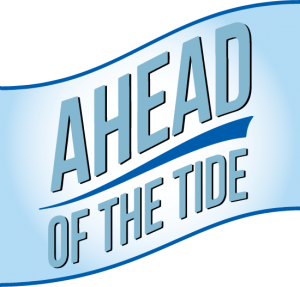Educating Coastal Communities About Climate Change
Communicating the effects of climate change — and the urgency of action — is arguably the greatest challenge facing environmental educators today. When the World Wildlife Fund (WWF), one of the world’s largest and most influential environmental groups, knocked on CAVU’s door with a proposal to create the newest “tool” in their ‘climate change toolkit’ — we didn’t hesitate.
The project, proposed to us by WWF’s Carlos Drews, one of Latin America’s foremost marine turtle biologists, seeks to explain the effects of climate change on sea turtles — and more importantly, encourage local communities to act while there’s still time.The project highlights a community project in Playa Junquillal, a critical leatherback sea turtle nesting beach along Costa Rica’s quickly developing north- western Pacific coast. There, a group of proud Costa Ricans has successfully reduced poaching of endangered leatherback eggs to near zero, built and operated a model hatchery and encouraged sustainable, eco-friendly practices — from reduced lights on the beach to rural tourism.
Their efforts, however, will be in vain if steps aren’t taken to safeguard the beach and turtles from the effects of climate change.
Despite such a compelling story, we were faced with an undeniable truth, the same one confronted by educators like CAVU around the world: Most in this humble town were facing more pressing issues than climate change – a seemingly remote threat when weighed against more urgent needs, like food or family.
Our challenge was to make climate change real, and relevant, for these people, and to help them learn to deal with its eventual effects not only on themselves, but on marine turtles, too.
After a week of filming, CAVU president David Smith, project coordinator Dave Sherwood and cameraman Alvaro Rodríguez discovered a proud little town with a deep understanding of sea turtles, their biology and future threats. “What’s good for people is good for sea turtles” quickly emerged as a theme – and many we interviewed gave us tangible examples of how this was so.
In many ways, we discovered Junquillal is special because it’s not: Like so many others in Latin America — it’s not part of a wildlife refuge, it benefits from no special status, yet it is blessed with an abundance of natural resources, including marine turtles. Such remote, little-known communities have always been the breeding ground for CAVU’s most successful projects.
The hope is that this now-complete 24 minute film and potent educational tool will highlight the accomplishments at Junquillal, and allow people to adapt to climate change while at the same time improve their own lives.
Playas Calientes, Olas Furiosas, will become an integral part of the World Wildlife Fund’s pioneering Climate Change Toolkit, and will be screened as part of wider educational outreach campaign in coastal communities throughout Latin America and the Caribbean basin.
For more information about Playas Calientes, Olas Furiosas, and the possibility of using it as an educational tool in a community near you, please contact Outreach Program Director Dave Sherwood at dsherwood@cavu.org.
If you want to learn more about climate change and turtles, and WWF´s climate adaptation work contact Marianne Fish, at cctortugas@wwfca.org
The film’s world premier was held in Playa Junquillal, where nearly 70 people from this small coastal town filled an open-air restaurant to watch the film, enjoying free pizza and drinks.
It was next screened in Costa Rica’s capital, San José, with an audience that included representatives from the Environment Ministry, many of the country’s premier conservation groups and international climate scientists, as well as the national media — and resulted in a wide array of press attention, including a feature article on climate change and sea turtles at Junquillal in the New York Times.
Shortly after this screening, CAVU received a request from Costa Rica’s Special Standing Committee on the Environment, a group of legislators from the country’s National Assembly, for a screening of the film.
Outside Costa Rica, the film has traveled to meetings and symposiums in South America to be presented as an integral part of the World Wildlife Fund’s innovative and pioneering Climate Change Toolkit.
CAVU distributed hundreds of copies to the families of Junquillal, free of charge, and has delivered more than 200 to scientists, educators and legislators since its release in August.
Contacts
For more information about Playas Calientes, Olas Furiosas, and the possibility of using it as an educational tool in a community near you, please contact David Smith at david@cavu.org.
If you want to learn more about climate change and turtles, and WWF´s climate adaptation work contact Marianne Fish, at cctortugas@wwfca.org



